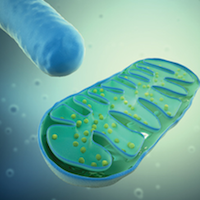Rebecca Taylor has an article in the National Catholic Register about scientists experimenting with three-parent embryos to try to combat mitochondrial disease:

The Catholic Church is clear that somatic gene therapy, non-inheritable genetic engineering in one individual for therapeutic reasons, is a moral good. But the Church draws a clear line between somatic and germ-line gene therapy.
Dignitas Personae, the 2008 instruction on bioethics from the Congregation for the Doctrine of the Faith, states: “Procedures used on somatic cells for strictly therapeutic purposes are in principle morally licit. … The moral evaluation of germ-line cell therapy is different. Whatever genetic modifications are effected on the germ cells of a person will be transmitted to any potential offspring. Because the risks connected to any genetic manipulation are considerable and as yet not fully controllable in the present state of research, it is not morally permissible to act in a way that may cause possible harm to the resulting progeny. In the hypothesis of gene therapy on the embryo, it needs to be added that this only takes place in the context of in vitro fertilization [IVF] and thus runs up against all the ethical objections to such procedures. For these reasons, therefore, it must be stated that, in its current state, germ-line cell therapy in all its forms is morally illicit.”
So even though the intent of creating three-parent embryos is therapeutic in nature, because IVF is required and because this is a germ-line modification, Catholics cannot embrace this procedure.
Looking closer at the passage from Dignitas Personae, the phrases “in the present state of research” and “in its current state” suggest that there may be a time where the Church may support germ-line gene therapy. If the gene therapy could be accomplished by modifying egg or sperm precursors in the body, allowing conception to take place naturally in the marital act, then that would address the problems with the use of IVF.
But there is still the problem of safety. The risks of modifying sperm and egg are indeed “considerable” to the potential offspring, which is why many countries like the United Kingdom, Canada, Australia and France have laws against inheritable genetic modifications.
My, but she has impeccable timing. In case you missed it, our latest episode of BioTalk also deals with 3-parent embryos. So, after you finish reading Rebecca’s article, be sure to check us out below for more even more on this topic: